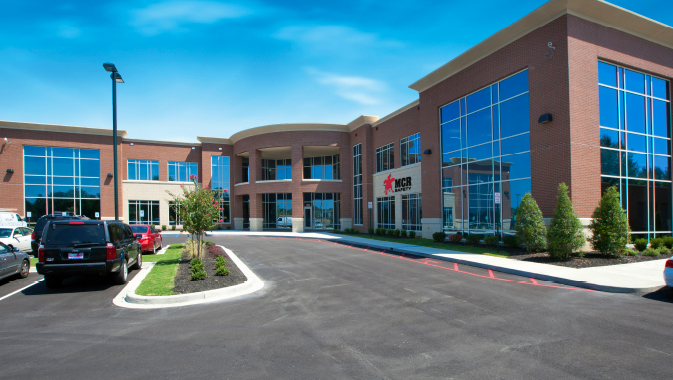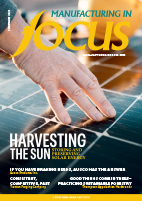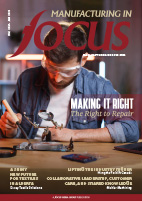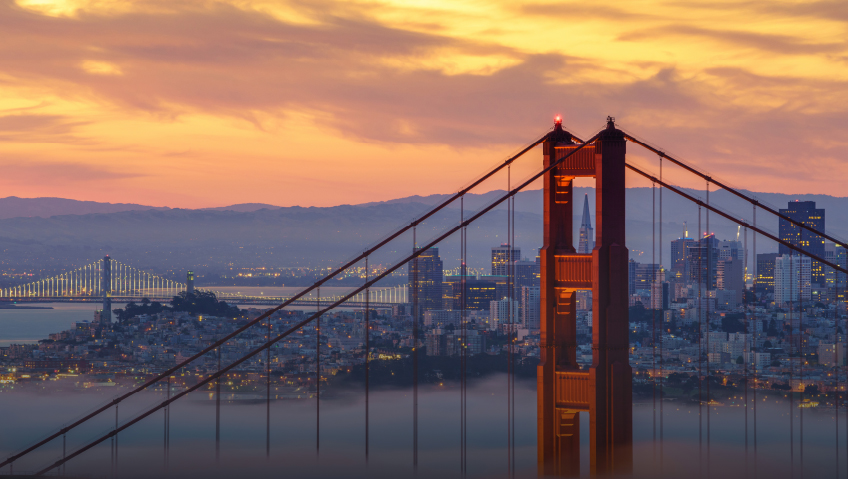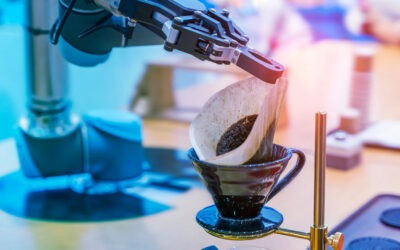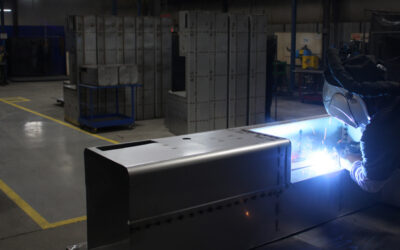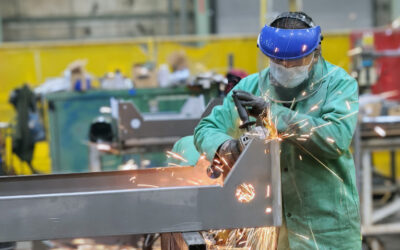MCR Safety is a manufacturer of personal protective equipment (PPE) including gloves, glasses, and garments. It sells its products through authorized distributors – the majority being business-to-business industrial distributors – all over the world.
~
MCR Safety was founded in 1974 by Hilliard Crews and was originally known as the Memphis Glove Company. The timing was ideal thanks to the Occupational Safety and Health Act (OSHA) of 1970. Companies were looking for ways to protect employees and make operations safer, which helped the company reach rapid success.
Hilliard Crews had two brothers who joined the PPE market, and by 1981, a new company called Crews Safety Glasses was founded. In 1984, River City Garments was established to provide protective clothing, and each brother ran a separate PPE company in the United States.
The three companies eventually consolidated into MCR Safety, and the benefit of merging the three companies was that they were all ranked in the top five in their respective categories in the United States. Memphis Glove was second in the overall glove market; Crews Safety Glasses was the number one safety eyeglass company, and River City Garments was in the top five for all garments.
“When the decision became known to take these three companies and consolidate them into one MCR Safety brand, our biggest strong point was the fact that these were three of the most well-known brands in our industry coming together to form a company,” says Jay McNeil, director of sales at MCR Safety. To this day, MCR Safety remains a privately-held, family-owned company.
The first warehouse of Memphis Glove Company was a ten-foot-by-ten-foot storage unit, but the primary US distribution center of MCR Safety today is 500,000 square feet. This large distribution center in Piperton, Tennessee serves eighty percent of the U.S. market. The MCR headquarters are located in Collierville, Tennessee; it has a distribution site in Reno, Nevada that covers the west coast of the U.S., and two more distribution centers that cover the rest of North America – one in Milton, Ontario, just outside of Toronto and the other in San Luis Potosi, Mexico. MCR also operates overseas, providing personal protective equipment to workers all over the world.
The owners decided to be a vertically integrated company from the very beginning. In the 1970s and 1980s, there were a variety of U.S. based manufacturing companies that would require three or four weeks to deliver a product after an order was placed. MCR Safety knew that it could improve that service by having enough stock to deliver a product the same day it was ordered. To increase efficiency, it began to use foreign markets and manufacturing overseas.
It is one of the only companies with its own leather tannery, and it can ensure the leather is being tanned in a way that is good for industrial work gloves. “We not only own our own tannery, we also own our own cut-and-sew facilities where we can take that leather and sew it into our gloves. That vertical integration and owning the manufacturing facilities, even though they are based overseas, has really put us in a good position to control the quality level of our product,” says Jay. The vertical integration also allows the company to have more control over the manufacturing time, which is how it has the service level that it does.
MCR also owns a yarn spinning facility in Mexico where it takes raw cotton and spins it into yarn. It does the same process with Kevlar, and it controls everything that goes into the yarn, which is particularly important when dealing with Kevlar. MCR is the only company that buys raw fiber Kevlar from DuPont, and after spinning it into a final yarn, it is shipped to its San Luis Potosi location where it is sewn into a glove using a string knit process.
“What’s important about us owning our own yarn facility is we actually have that whole area separated by air systems and doors, so we know that not even a little fiber of cotton can accidentally float over into our Kevlar facility,” says Jay. Customers can be confident that MCR’s Kevlar thread is one hundred percent Kevlar, as a result of the vertical integration.
On the cotton side, MCR has learned over the years that it can purchase consumer-recycled materials such as old t-shirts and towels from the other textile companies in Mexico and break those scraps back down into cotton material that looks as though it is in a raw form. That recycled cotton is turned into yarn and used for the liner of string knit gloves.
MCR prides itself on being in the top tier of quality PPE manufacturers, and it regularly invests in itself to remain at the top. “We are actually the only glove manufacturer that has an ISO 17025 accreditation in a testing laboratory, which means that we have third-party oversight come in and audit our testing procedures,” says Brian Singer, director of sales at MCR Safety.
The company has an in-house testing laboratory where it inspects inbound shipments and tests products to ensure that they are of the highest performance level. It also has a robust quality management system to make sure that the quality assurance and environmental compliance is up to date.
The company was founded on hard work, and even though it has grown substantially over the last forty-five years, its principles have not changed. “We have not strayed from the fact that we are family owned. We are still one big family, even though we have grown. We may be in a bigger building, and we may have better resources than we did back then, but we’re still the same company,” says Chris Smith, director of marketing at MCR Safety.
Over one thousand people are employed by MCR Safety worldwide and are recognized and celebrated for their hard work. MCR has an internal award that is given to those who instill themselves with leadership principles and makes the winner eligible for various prizes. It is meant to show the company’s appreciation toward those who separate themselves and strive to be leaders by truly owning their position in the company. There are many talented employees at MCR who could work in any industry, yet they choose to work for a company with the goal or protecting people.
The products that it manufactures, packages, and distributes are being used to protect workers all around the globe. “Our gloves make sure that a worker can hold his wife’s hand when he gets home at night. Our safety glasses protect the eyes so you can see your family and see your children, and the garments could save your life when it comes down to high-visibility for road construction,” says Jay.
One of the biggest challenges that MCR comes up against is the inadequate safety products manufactured by other companies in the industry, some of which are made in countries with fewer rules and regulations for safety equipment. There is an influx of products in the marketplace that are meant to be protecting people, yet when they are tested to safety standards or cut resistance standards, they are not meeting requirements. This means that MCR must inform the end user that what they find for a lower cost may not be providing the right amount of protection.
Another challenge that comes with this is ensuring that MCR is not grouped in with those companies that are not providing the right materials at the right safety levels. This is especially important since MCR manufactures products all over the world, including in countries like China. Its ISO 17025 accreditation helps to separate it from companies that supply less than safe products. “Every time someone opens up a pair of gloves or puts on a vest, they can rest assured knowing that our quality is going to be second to none,” says Brian.
In the last two years, MCR has introduced a program to listen to the customer and provide solutions. The first step is to enter a factory or a construction site to do a hazard assessment of all the dangers that pertain to gloves, glasses, and garments. It considers what PPE is currently being used and where it may be lacking in safety including heat resistance, chemical protection, and cut resistance. MCR also looks at the number of injuries that occurred in the last year to find out where the trouble areas are, and after collecting all the data, it makes suggestions as to what PPE should be adopted.
The time trial is the next step to determine if the overall total cost of ownership is lowered and the number of injuries is reduced with the new PPE. If the number of recordable injuries is lowered, MCR provides the customer with documentation to show the cost savings. If the customer is pleased and wants to move forward with a change in PPE, employees need to be retrained on the new equipment.
The experienced professionals at MCR either assist the customer by providing that training or will provide the literature for them to provide their own training to the employees. “It’s all about protecting people. With that multi-step process from the hazard assessment to the training of the employees, we make a full 360-degree circle so that they can adequately protect their employees,” says Jay.
The MCR facility in Piperton has a full customization department to provide customers with unique products. Much of the customization that is done is to incorporate a company’s logo on the PPE. There is an imprint area and a silkscreen area to put a brand or image on the lens of glasses, gloves, or garments.
If MCR does not carry the necessary glove, glasses, or garment a customer is looking for, the production management team can design a product to meet that specific need. “We listen to the users of our products to find out what their true concerns are with their PPE. We make sure that all new products that we introduce are meeting that need and providing that solution for the customer,” says Jay.

